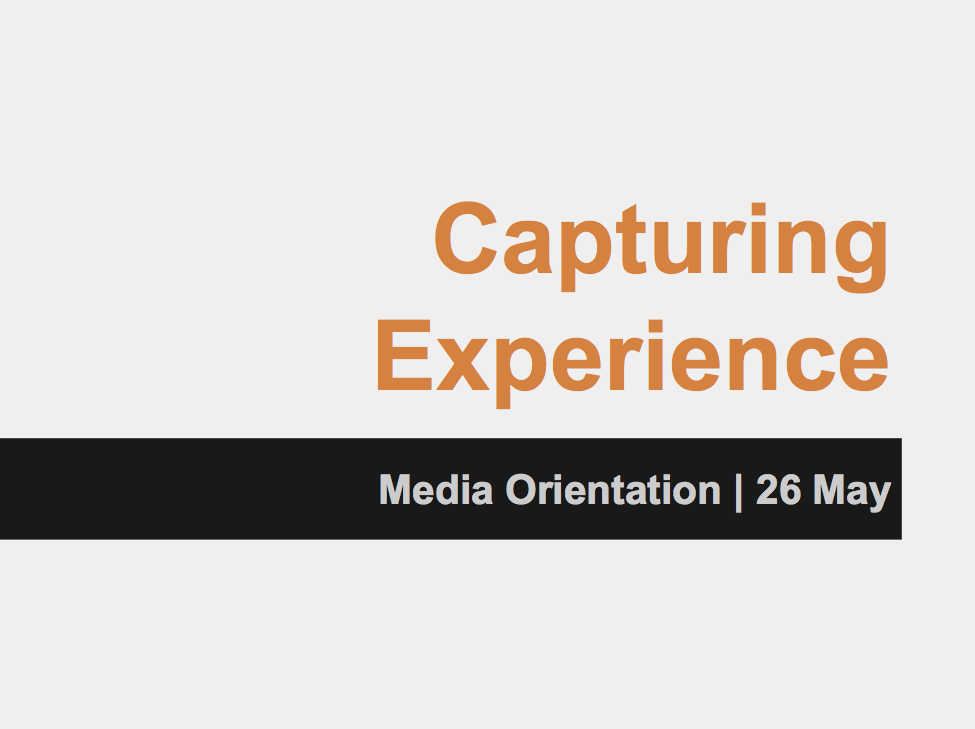Following Up: Summer Programming at the Penn State Center
Well, somehow it’s the first day of classes for the Fall term already. Though I’m not in any way sure where the Summer went, I do know that a large part of mine was spent impatiently awaiting the opportunity to write up this blog post because it signals the (very!) successful completion of major milestones in the programming I’d established with the Penn State Center in Pittsburgh.
Preparing to Show and Listen
As mentioned in my previous post detailing the start of this Summer’s engagement with the interns who would be calling the Center headquarters, an orientation session and training kicked things off on May 26th. Since video documentation had never been part of the Landscape Architecture internships the Center had hosted in the past, I wanted to provide students with an example of what would be feasible but also very professional without a lot of technical investment. Eventually, I settled on:
By next breaking down the video into its component parts, I explained to the interns exactly what kinds of materials they’d need to collect – and why – while in the field. We also discussed sources of additional, legal media, getting consent from interview subjects, using the Mobile Media Kits provided for their work and other related topics before breaking into a more project-specific Q&A.
After receiving a very enthusiastic response towards story documentation from all of the interns (not just the two Northside interns I’d been expecting to work with were in attendance) and their coordinators, I returned with Heather Hughes to offer a follow up workshop based on the We Listen programming on which we had been collaborating. We Listen aims to raise awareness of difference by applying intentional listening to recording the stories of those in a given community. It also presents a natural fit for these interns as they found themselves working on projects that respond to the needs of city neighborhoods and their residents.
Turning It All Loose – and Waiting
Honestly, after training (and attending the Northside interns’ orientation session with GTECH Strategies so they could learn about their summer projects more in-depth), my main role became that of just-in-time support for the students as they worked through gathering twelve weeks of materials for their projects.
This became the very long wait. And a period of anxious curiosity. (Offset by some really great press via the University-wide news, though.)
I learned that I didn’t need to be worried in the least, though, as the last week of the summer experience arrived and I got to see what had been created by Jeff and Emily during their time with the Community Asset Mapping project in my neighborhood.
And you can, too:
These two both did an amazing job for first-time documentarians and story listeners, especially given they worked with nothing more than iPad minis and their own iPhones. I couldn’t be more proud of the work they put together.
Stories Go Trans-Atlantic
Perhaps it was a bit of a gamble, but Heather and I felt very confident about the potential for We Listen principles and practices at the Penn State Center, especially as it pertained to being piloted in these neighborhood-based engagements for summer. So we submitted a proposal to talk about the experience in London at the Designs on eLearning conference. We must have gotten that confidence across, as well as some of our excitement because we were accepted and will be departing in mid-September to present at Central Saint Martins (!).

As before, this work at the Center is still developing – as are our slides for DeL. So keep an eye out for not just the full presentation when its finished but also updates on everything going on here in Pittsburgh in the weeks to come.


Kudos to you, Nick! I really enjoyed reading about your summer projects and seeing the resulting student videos. Very cool!
Thanks for stopping by and taking a look at the write up, Emily – this project was a lot of fun to work on and I’m looking forward to seeing where programming with the Center goes next.